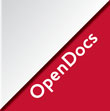Filtering Information: Human Rights Documentation in Bangladesh
Abstract
Documentation of human rights violations is a difficult and dangerous practice. The capacity of human rights organizations does not match the extent of the problems they encounter and the depth of the issues they illuminate. Documentation of human rights violations frames claim-making, manifestations of victimhood and citizenship. By examining documentation practices in Bangladesh, I show how information travels through a line of filters that determines and delimits what we can know about violations, what we can do to assist victims, and how we can prevent future abuses. I argue that this filtering process is a selective political practice—one which is conditioned by the individual capacities, organizational resources, and political contexts through which exposures to violence become human rights cases. It is this—the ‘how’ of documentation—that delimits what is made public and what is known about violations.

